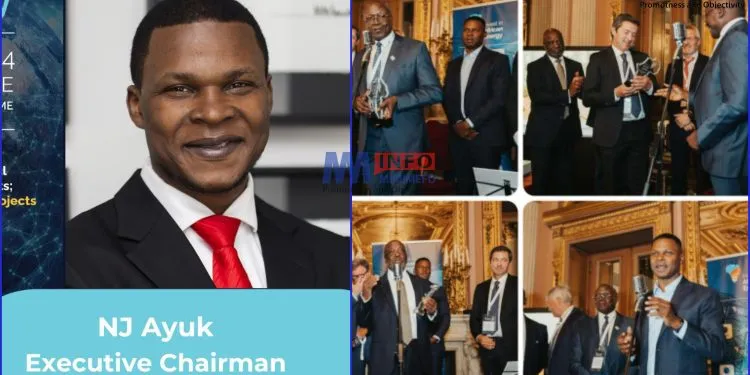African leaders from civil society, human rights groups, environmental organisations, governments, and the private sector have criticised the ongoing polarisation of the energy dialogue in Western countries and called for an end to the demonization of African oil and gas. They are advocating for free market solutions for Africa, rather than a continued push for aid that requires Africans to leave their resources untapped.
This sentiment was the outcome of the Invest in African Energy Forum recently held in Paris, France. The forum resulted in a commitment to align Africa’s efforts in combating energy poverty and fostering industrialization, all while advocating for a just energy transition and ensuring climate justice.
Despite its rich resources, Cameroon’s energy sector remains underdeveloped. With Africa struggling to effectively harness its resources, Western nations are investing millions, which ultimately do not benefit the continent. Africans aim to change this narrative by taking control of their own energy future. One of the speakers at the forum, Cameroonian-born NJ Ayuk, the Executive Chairman of the African Energy Forum, took to X (formerly Twitter) to articulate his vision for the forum.
“Africa’s energy sector is a vibrant frontier, offering significant untapped potential. With over 125 billion barrels of proven oil reserves, 620 trillion cubic feet of natural gas, and abundant renewable energy resources, the continent presents lucrative opportunities for foreign investors. IAE 2024 is a prime occasion to capitalise on these prospects,” NJ Ayuk wrote
At the energy forum in Paris, they emphasised that more aid is not the solution; investment is key. “From Cape to Cairo, from Nairobi to Dakar, we stand united towards meeting our shared obligations to fight climate change, noting that wealthy nations need to decarbonise and Africa needs to industrialise,” stated the summit’s declaration.
They discussed numerous issues affecting the energy sector on the continent, highlighting that wealth disparities contribute to climate hazards and poverty. Instead of relying on the West, African civil society, human rights groups, environmental organisations, governments, and the private sector agreed that African countries must diversify their capital sources and create financial instruments outside of traditional institutions—tapping into private equity and non-conventional bonds to fund new exploration and energy initiatives.
“African countries must put in place attractive regulatory and fiscal terms, thereby creating an enabling environment and removing all barriers to investment, such as incoherent regulation, excessive red tape, or nationalistic policies. With competitive terms and incentives in place, followed by the integration of ESG principles and capacity-building requirements, African energy projects will be able to compete effectively for global capital and work towards making energy poverty history across the continent,” the groups revealed.
They reaffirmed Africa’s sovereign right to develop its energy resources, which include over 125 billion barrels of oil and 620 trillion cubic feet of natural gas, in a balanced and sustainable manner. Ramping up energy investment, securing continuous finance, and advancing energy projects are Africa’s core priorities, as 600 million Africans lack access to reliable power and 900 million lack access to clean cooking fuels.
“By fostering an environment conducive to investment and innovation, we Africans aim to unlock the continent’s vast energy potential and empower communities with access to reliable, affordable energy sources,” they said.
Despite Europe’s repeated calls for natural gas and green finance, there remains a significant blockage on energy finance for African countries. This financial chokehold continues to inhibit Africa’s industrial growth and the development of critical gas-driven industries like power, petrochemicals, fertilizers, and mining, keeping the continent at a developmental lag.



